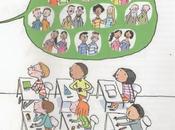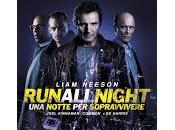

Il colpevole è il suo romanzo d’esordio, ed ha avuto un’ottima accoglienza da parte del pubblico in Gran Bretagna, arrivando a quattro edizioni in poco tempo. Cosa si aspetta dalla traduzione italiana, pensa che il libro possa riuscire a ritagliarsi uno spazio tra gli appassionati di thriller psicologici?
Ero assolutamente entusiasta del fatto che il libro sarebbe stato pubblicato in Italia e spero che riceverà un'ottima accoglienza da parte dei lettori appassionati di romanzi di letteratura e commerciali. Il romanzo è psicologico e incentrato sui temi della natura, dell'educazione e del libero arbitrio e allo stesso tempo esamina le cause della violenza dei bambini. L'ampio spettro di temi trattati lascia pensare che il libro interesserà un'ampia platea di lettori.
La storia vede protagonista Daniel Hunter, avvocato londinese, la cui vita cambia quando gli viene presentato Sebastian, un ragazzo di undici anni accusato di aver assassinato un coetaneo innocente. Da dove nasce l’ispirazione per scrivere un plot simile? È stato molto complesso riuscire ad addentrarsi in questi terribili meandri di “vita domestica”?
Il romanzo si snoda su due livelli temporali: il presente, con il processo per omicio di un bambino di undici anni, e gli anni Ottanta con l'infanzia dell'avvocato, a sua volta bambino disturbato e violento. La trama si è venuta costruendo intorno ai personaggi di Daniel bambino e della madre adottiva Minnie. [...] Il personaggio di Sebastian è stato invece creato con lo scopo di far superare a Daniel il trauma subito nella sua infanzia problematica, per mostrare quali possano essere le conseguenze per un bambino che non abbia ricevuto adeguate attenzioni.
In Sebastian sono racchiusi due aspetti contrapposti che a tratti emergono durante l’interrogatorio di polizia: l’ingenuità dell’infanzia e il “male” della devianza psicologica che sfocia nell’omicidio. Il lettore che ancora non conosce il “colpevole” rimane incagliato in questa dicotomia. La domanda è dove finisce il primo aspetto e dove, invece, inizia il secondo?
Non mi piace pensare che i bambini del libro siano cattivi. Semplicemente ciascun personaggio ha una sua complessità, ma sono d'accordo che il libro affianchi l'innocenza dell'infanzia all'orrore della violenza. Spero che il lettore possa trovare questa dicotomia non solo nel personaggio di Sebastian, ma anche comparando il racconto al presente con i fatti degli anni Ottanta.
Per il sistema giudiziario inglese Sebastian, nonostante abbia solo undici anni, è imputabile e quindi punibile. Dagli inquirenti, dalla pubblica accusa e dai media il bambino presunto colpevole viene trattato come un adulto. Quali sono, se ci sono, i limiti di una giustizia di questo tipo?
L'Inghilterra e il Galles sembrano essere non al passo con il resto d'Europa, avendo un'età bassa per la responsabilità penale. Io vengo dalla Scozia, dove i bambini sono ora considerati penalmente imputabili dall'età di dodici anni. Anche se è sempre un limite basso, il sistema scozzese ha un sezione specializzata che si occupa dei bambini accusati di un crimine - un posto dove insegnanti, genitori, avvocati e laici hanno una visione olistica dei bambini con il fine ultimo della riabilitazione. Questo sistema sembra essere migliore di quello inglese. Certamente il romanzo ha provato ad evidenziare il fallimento della famiglia, della società, della giustizia penale e di ognuno di noi nel considerare i bambini violenti. Si intitola Il Colpevole - ma chi è veramente il colpevole è la domanda. Il fatto che Sebastian sia colpevole o innocente è in realtà poco rilevante, perchè ognuno nel libro è colpevole in qualche modo. Questo suggerisce che la storia è più complessa - il dito è puntato su tutti, la società e noi stessi.

I miei eroi letterati sono Joyce Carol Oates, Margaret Atwood e Toni Morrison. Durante le ricerche per questo libro ho anche letto Blake Morrison e Gita Sereny che hanno entrambi scritto meravigliosamente dell'infanzia e della violenza nei bambini
Dopo aver studiato e vissuto per tanti anni in Cina, attualmente è tornata nel Regno Unito per insegnare alla University of Glasgow. Il colpevole è solo una parentesi alla sua attività di studiosa e insegnante o ha in progetto di scrivere altri romanzi?
In verità non insegno nè ricerco alla University of Glasgow. Dopo essere tornata dalla Cina nel 2002 ho lavorato presso l'università per sette anni nell'International Office. E' assolutamente la mia intenzione di continuare a scrivere. Spero di finire presto il mio nuovo romanzo. * * * *Il colpevole is your first novel, and was greeted by the public in the UK, with four issues in a short time. What do you expect from the Italian translation? Do you think that the book will have success with psycho thriller fans? I was absolutely delighted that the book will be published in Italy and hope that the book will be welcomed by those readers who enjoy both literary and commercial fiction. The novel is very psychological with the themes of nature, nurture and free will, while also examining the causes of violence in children. The wide-reaching themes should mean that it will interest a wide range of readers.
The main character is Daniel Hunter, a lawyer in London, whose life changes when he gets to meet Sebastian, an eleven years old boy charged of the murder of an innocent boy of the same age. Where the inspiration for this plot came from? Was it hard to go into this horrible domestic life scenario? The novel has a dual narrative, one of which is the present day murder trial of an eleven year old boy, and the other set in the 1980s covering the childhood of the lawyer who himself used to be a deeply disturbed and violent child. The idea from the book came from the characters of Daniel as a child and his foster mother Minnie. The characters came to me fully formed, but I could tell that this was the lawyer's past story and that in the present day he was successful, and very different from his child self. The character of Sebastian was created as a construct to throw Daniel's troubled childhood into relief, to almost show the potential consequences that can result from children not being properly cared for.
In Sebastian own nature you can find two different aspects that emerge during the questioning of the police: naivety of childhood and the evil of deviant behaviour which brings to the murder. The reader, who do not know yet who is the murderer, is stuck in this dichotomy. My question is: where the first aspect ends, and the second starts? I do not like to think that either of the children in the book are evil. I see each character as more complex, but I do agree that the book considers the innocence of childhood alongside the horror of violence. I hope that the reader will see this dichotomy not just in the character of Sebastian, but in comparing both the present day and 1980s narratives.
For UK legal system, Sebastian, even if he is only 11 years old, can be charged of a crime and punished. From the examining officer and from the media, the boy (considered as guilty) is treated as an adult. Is there a limit to this type of justice? England and Wales appears to be out of step in Europe having such a low age of criminal responsibility. I am from Scotland, where children are now considered criminally responsible from the age of twelve. Even although this is still low, the Scottish system employs a Children's Panel to consider children accused of crime – a place where teachers, parents, lawyers and lay members can consider a holistic view of the child with rehabilitation as the key. This seems better than the current English system. Certainly the novel was trying to highlight the failure of the family, society, the criminal justice system and each and every one of us in considering children who are violent. The novel is Il Colpevole – but who is guilty is under question. In the book the question of Sebastian's guilt or innocence is actually irrelevant as everyone in the book is guilty in some way. This then suggests that the story is harder to walk away from – the finger is pointed at everyone, even society, ourselves.
Il colpevole is written in an original way, and with a clear and inedited style. Are there novels of other authors who had an important role for you in writing your story? My literary heroes are Joyce Carol Oates, Margaret Atwood and Toni Morrison. In researching this book, I also read Blake Morrison and Gita Sereny who have both written beautifully about childhood and violence in children.
After having lived and studied for many years in Chinaa, you are now back in the UK to teach at the University of Glasgow. Il colpevole is only a break in your life as researcher and teacher, or do you have in mind to write other novels? I do not teach or research at University of Glasgow. I worked at the university for 7 years in the International Office after returning from China in 2002. It is absolutely my intention to keep writing. I am hoping to finish my new novel soon.







